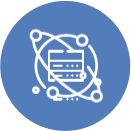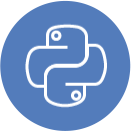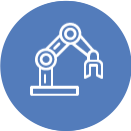Our Alumni Work At

"AI to contribute $16.1 trillion to the global economy by 2030. With 133 million more engaging, less repetitive jobs AI to change the workforce." - (Source). Data Science with Artificial Intelligence (AI) is a revolution in the business industry.. AI is potentially being adopted in automating many jobs leading to higher productivity, less cost, and extensible solutions. It is reported by PWC in a publication that about 50% of human jobs will be taken away by the AI in the next 5 years.
There is already a huge demand for AI specialists and this demand will be exponentially growing in the future. In the past few years, careers in AI have boosted concerning the demands of industries that are digitally transformed. The report of 2018 states that the requirements for AI skills have drastically doubled in the last three years, with job openings in the domain up to 119%.
FAQs for Data Analyst Course in Bangalore
Bangalore will continue to be one of the major tech hubs of India, and there is going to be a marked increase in the need for Data Analysts by 2025. IT, finance, e-commerce, healthcare, and startup companies are all depending more on data-based decisions. Strong analytical and technical professionals will have plenty of opportunities to develop their careers and receive high pay.
Yes, 360DigiTMG conducts offline, classroom-based Data Analytics training in Bangalore. Students can directly engage with instructors, perform hands-on exercises, and work on live projects. This is the best mode of learning for those who need face-to-face interaction and a collaborative classroom environment.
The course starts with easy-to-grasp fundamentals and gradually helps you gain confidence in handling data, creating visualizations, and using analytics tools. Through regular practice and constant guidance, even non-technical experts can acquire the skills to work fearlessly in the sector.
360DigiTMG provides a good Certification Program on Life Sciences and Healthcare Analytics meant for medical professionals. The course is devoted to Clinical Healthcare Data Analysis. Medical professionals will learn to interpret Electronic Health Record (EHR) data types and structures and apply predictive modelling on the same. In addition to this, they will learn to apply machine learning techniques to healthcare data.
To enrol in data analytics training in Bangalore, candidates must have a bachelor’s degree in mathematics, statistics, computer science, data science, or engineering, ensuring a solid foundation in analytical and programming skills.
The duration of this course is three months. It comprises of 48 hours of classroom or online sessions, 80 plus hours of assignments and e-learning and 80 plus hours of live project work.
The key objectives of a good data analytics course in bangalore are:
- Become proficient with different data generation sources
- Master Text Mining to generate Customer Sentiment Analysis
- Analyze and transform Structured and Unstructured data using different tools and techniques
- Learn the techniques of Descriptive and Predictive Analytics
- Apply Machine Learning approached for business decisions
- Build prediction models for day-to-day applicability
- Perform forecasting to take proactive business decisions
- Represent business results using data visualization techniques
The curriculum of this course includes the following subjects:
- Data Preparation
- Data Cleansing
- Exploratory Data Analysis
- Feature Engineering
- Feature Extraction
- Feature Selection
- Hypthesis Testing
- Regression Analysis
- Predictive Modelling
- Data Mining Supervised
- Data Mining Unsupervised
- Text Mining
- Natural Language Processing
- Machine Learning
- Black Box Techniques - Neural Networks, SVM
- Time Series Analysis / Forecasting
- Project Management
Pursuing data analytics courses in Bangalore provides access to abundant job opportunities, enhances decision-making, and opens doors to high-demand roles in data-driven industries, making it a lucrative qualification for career advancement.
Data Analytics is widely used in the Financial Services industry today. Finance professionals can benefit from a data analytics course. They will understand how data analytics is employed in Stock Market Investments, Banking, Financial Advisory and Management, EPS etc. The application of Artificial Intelligence in Algorithmic Stock Trading, Automated Robo- Advisors and Fraud Detection Systems are also elaborated in-depth in a financial analytics course.
360DigiTMG offers a very comprehensive Certification Program in HR Analytics for HR professionals. The module includes
- Enabling Workforce Analytics
- Predictive Modelling for Ethnic Diversity
- Machine Learning to predict Employee Turnover
- NLP techniques to screen and recruit candidates
- Predicting Employee Performance
- Predictive Modelling of sickness/ absence
- Deep Learning for Emotion Mining in Workforce Analytics
The course material can be downloaded from our online Learning Management System (AISPRY).
We do teach data visualization with Tableau as part of the data analytics course.
As soon as a student joins a course he is assigned a mentor. If the institute feels that a particular student requires additional assistance then they will assign some more mentors for a single student.
We host several free webinars on data analytics on youtube. They can be accessed from the link given below
https://www.youtube.com/channel/UCNGIDQ466bNY87eEeKeQuzAYes. The cost of the certificate is not absorbed in the course fee.
All classroom sessions are video recorded and lodged in our Learning Management System AISPRY. If you miss a data analytics classroom session you can access the recorded session from the Learning Management System.
Once a student completes his course and receives the Course Completion Certificate, he is eligible for an internship. We offer an internship with AiSPRY. The students gets involved in a live project with AiSPRY. At the end of his internship, he will receive an Internship Certificate in recognition of his efforts.
Yes, fresh graduates can benefit from hands-on experience through internships, live projects, and exposure to real-world data analytics, which improves employability and makes them job-ready for positions in data analytics training in Bangalore.
You can apply for the following jobs after completing the course:
- Data Analyst
- Data Scientist
- Data Engineer
- Data Architect
- Business Analyst
A Data Analyst deals with Data Cleansing, Exploratory Data Analysis and Data Visualisation, among other functions. The analyst's job is to sift through historical data to understand the present state of the business.
A Data Scientist builds algorithms to solve business problems using statistical tools such as Python, R, SAS, STATA, Matlab, Minitab, KNIME, Weka etc. He also performs predictive modelling to facilitate proactive decision-making. Machine learning algorithms are used to build predictive models using Regression Analysis and a Data Scientist must develop expertise in Neural Networks and Feature Engineering.
A Data Engineer is essentially a programmer in Spark, Python and R and complements the role of a data scientist.
A Data Architect is entrusted with the task of establishing hardware and software infrastructure needed to perform Data Analysis. They have to select Hard Disk, Network Architecture, Databases, GPUs etc.
Our data analyst course in Bangalore with placement offers end-to-end job assistance, including resume building, mock interviews, and collaborations with placement consultants to enhance job opportunities for graduates upon completion of the program.
Data Analytics is the emerging field in data science. It is definitely worth pursuing a data analytics course after your MBA. You can specialise in Financial Analytics, HR Analytics or Supply Chain Analytics. Once you finish your training you can apply for the position of Data Analyst.

Projects for Data Analytics in Bangalore
Students can do various projects in the field of data analytics to demonstrate their grasp of fundamental concepts in data analytics. They can work on traffic monitoring using satellite images, build Chatbots, perform sentiment analysis to understand the positive or negative polarities of the customer

What are the tools used to learn Data Analytics in Bangalore
The tools used in Data Analytics help in collecting, storing, and analyzing large amounts of data. The various tools covered in this program are Python, R, and RStudio. These tools are also used for data mining, analysis, and visualization.

Which mode of training can we choose to learn Data Analytics in Bangalore
The course in Bangalore is designed to suit the needs of students as well as working professionals. We at 360DigiTMG give our students the option of both classroom and online learning. We also support e-learning as part of our curriculum.

What are the industrial applications of Data Analytics in Bangalore
Data Analytics is used across varied sectors that are data-driven and is used for Customer Analytics, Compliance Analytics, Fraud Analytics, Operational Analytics, etc. in the field of Healthcare, Travel, Retail, Energy Management, Gaming, etc.
Talk to your program advisors today!
Get your profile reviewed
360DigiTMG - Data Science, Data Scientist Course Training in Bangalore
Data Analytics Certification Course Training Locations Nearby Bangalore - Google Reviews Data Analytics Classes in Bangalore, Best Data Analyst Course in Bangalore, Data Analytics Institute in Bangalore, Data Analytics Course in Bangalore, Data Analytics Institute in HSR Layout, Best Data Analytics Institute, Data Analytics Institute in Banashankari, Data Analytics Coaching in Bangalore with Job Assistance, Best Data Analytics Training in Indira Nagar, Best Data Analytics Course in Jayanagar, Data Analytics Coaching in Electronic-City, Data Analytics Certification in Whitefield, Data Analyst Course in BTM, Data Analytics Certification in Malleshwaram, Data Analytics Course in MG Road, Data Analytics Institute in Koramangala, Data Analytics Training in Koramangala, Best Data Analytics Training in Yelahanka, Data Analytics Training in Bellandur



